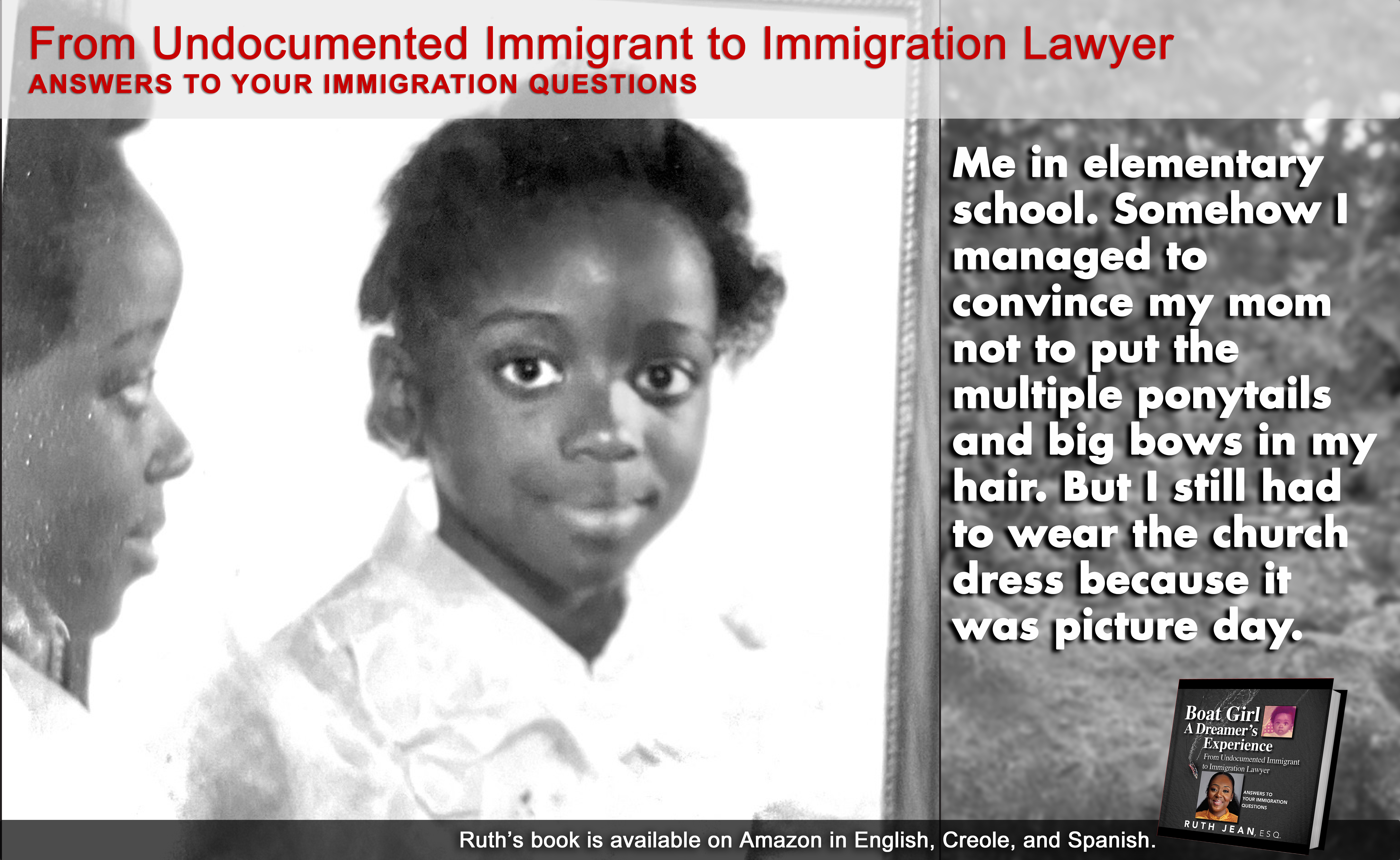
An Excerpt From Ruth Jean’s New Book
Yearning to Breathe Free: Asylum Seekers We are far from it.
“Give me your tired, your poor, your huddled masses yearning to breathe free” are the words engraved on the Statue of Liberty. This quote in the immigration context brings to mind asylum seekers. Who is more yearning to breathe free than a person fleeing persecution from their home country? This is what defines an asylum seeker! Asylum seekers are yearning for freedom so badly that they will risk their lives to escape their country and come to the United States. I came to America on a boat, on a life-threatening voyage.
When my mother and father fled Haiti, the country was led by a dictator, Jean-Claude Duvalier, who had survived his father, François Duvalier. They were fleeing a regime that ruled with an iron fist.
Individual freedom was unheard of in this regime. There was no such thing as freedom of speech in the Duvalier regime. People were not allowed self-expression, and a few ruled over the masses. The regime employed local military chiefs all over the country called the “Tonton Macoutes.” This meant that many people fled Haiti by boat to the United States. In fleeing Haiti, many landed in the United States and sought asylum from this deadly regime.
An asylum seeker is a person who has experienced persecution in their home country and fears returning to their home country on account of that persecution. The problem that I have encountered from some people who want to apply for asylum is that they seek asylum simply because their home country is experiencing terrible country conditions but they themselves have experienced no persecution or reasonable fear of persecution.
Persecution is not just harassment or problems in one’s home country. It must be on account of race, nationality, religion, membership in a particular social group, or political opinion. This means that whatever persecution a person may have experienced in their home country must be connected to one of those five reasons. Often, individuals experience problems in their country that may be solely economic or problems with crime in their country that fail to fall under the qualifications of asylum and while these situations are sad and require relief, they are not what the asylum laws were meant to rectify.
To Be Continued...
Can’t wait? Her book is available on Amazon in English, Creole, and Spanish. BUY NOW
